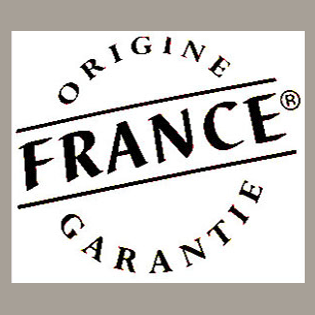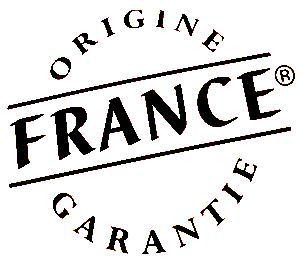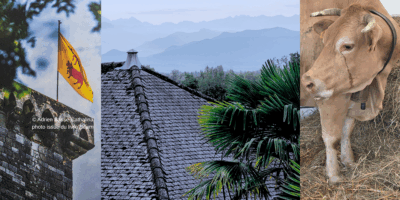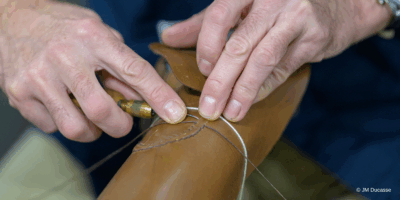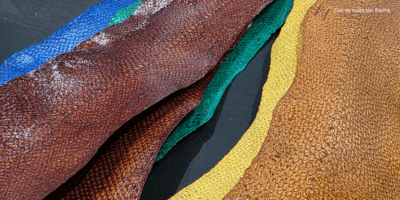A label? Tell me more! The official Made in France label has come to light: now, products with “Origine France Garantie” (“French Origin Guaranteed”) written on them will confirm a true Made in France item.
During the official launching of the Made in France label held on May 19th at the French Assembly, it was explained to us that it was time to set the record straight. How? By providing information to customers through a logo that certifies the seriousness of the Made in France label. “This no gimmicks attitude is affirmed through the logo’s simple sober look.” a member of Pro France tells — Pro France is a State linked non-profit organization promoting products made in France. It gathers companies and professional federations then puts money and competencies together in order to build the official Made in France label. Yves Jégo, the deputy of Seine-et-Marne has been in charge of leading the movement for the label initiated by the French President in 2009.
The Pro France members explain how ambitious the label is: it will pertain to all French items, including luxury products. It’s up to us, the consumers, to make a shift from conscious consumers to engaged citizens. It is a voluntary label for now, for the idea is to engage to help shift the production system into the French territory. We were told that companies are to wake up to the issue and customers are to take action and make a difference by buying locally produced items.
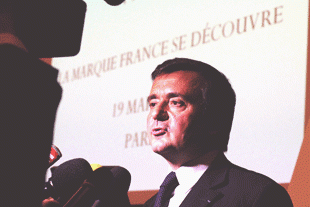
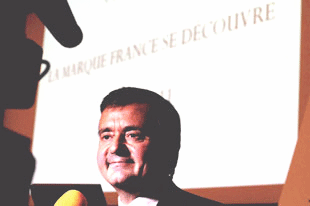
Certified French Luxury?
Can you imagine the “Origine France Garantie” label next to the logo of big luxury names? Do they fear it would take away from the original, sans-label status? Luxury brands are juggling with this hot potato.
Would the promise for using local and French savoir-faire from the top skilled craftsmen of luxury need to be inspected and confirmed? Would luxury-buying customers need to be reassured of the frenchness of these luxury brands?
“For some of the 100% made in France brands who are already recognized for their local entrenchment, the new Made in France label is irrelevant,” Jacques Martin-Lalande, a member of the French Fashion Manufacturers Group, reports on the behalf of some of the fashion members — and regrets. “Other fashion brands (probably not luxury brands or not real luxury ones),” he continues “have completely outsourced their production and at last, there are fashion brands who keep some of their production in France and the rest abroad.” The issue of labeling products becomes a headache in regards to brand image.
Here we see the dark side of the global industry of luxury which has been more or less practicing outsourcing for the last 10 years. The mysterious and glittering world of luxury reveals how it is an industry as any other one is. In light of this context, would the customers of luxury fashion need to be reassured by the certified Made in France label, instead of solely the brand logo?
Fight against Counterfeiting
“The label will help fight against the social and economic scourge of counterfeiting.” says André Marcon, President of the Assembly of French Chambers of Trade and Industry (ANCI).
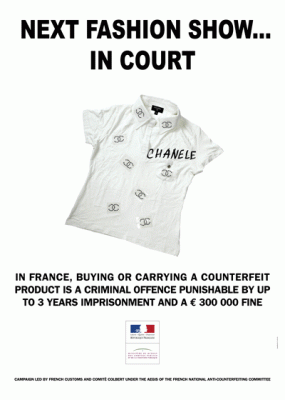
What will the label guarantee? Bureau Veritas, the wordwide leader in providing certification, is authorized to deliver the new label along with the answer to that question. It explains that “to qualify for the label, companies must prove that a minimum of 50% of a product’s added value is of French origin, and that a product’s essential characteristics have been created in France, which goes beyond the usual custom requirements regarding “Made in ________”. The recognized companies do not need to have a French shareholder. The label can be used on products sold domestically and for exports.
Bureau Veritas explains that “By being clear, simple and instantly recognizable, the label creates value for everyone, from producers who want to promote the “frenchness” of their goods to consumers who want to support the economy by buying locally. The certification process will be suited to all type of companies, from very small to very big, who are willing to have a product certified.”
Here are some telling numbers: with a turnover of 22 billion euros by the French luxury market in 2009, job losses per year reached 40,000 in France and 200,000 in Europe, all caused by counterfeiting. This represents a 6 billion euro loss for the French luxury industry, according to the Comité Colbert (French exporters of luxury lobby group).
The survey also notes changes in counterfeiting: there’s been an exponential increase of counterfeit items in the European Union and in France, thus increasing links with organized crime as well as diversification with internet sales channels.
Counterfeiters’ creativity is mind-boggling! Double branding is one phenomenon: brand identity codes from two different brands on one item. A Nike logo on a sneaker copying a Reebok! This creativity, if we can call it that, has earned itself its own museum! Paris has a Musée de la Contrefaçon (Museum of Counterfeiting). The Made in France label will somehow help participate in the fight against counterfeiting, hoping that eventually companies will ask for the certification.
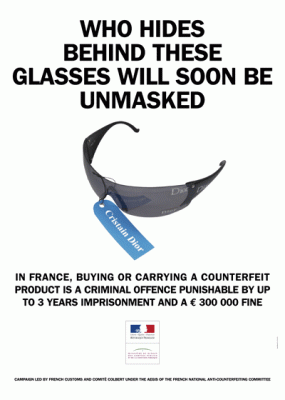
Top priorities for the French:
price and information
According to the Made in France survey conducted by French TNS Sofres in April 2010, and whose results were used in elaborating certification, 95% of French people claim that it is important for companies to mention whether or not their products have been made in France. Around 9 out of 10 French people think that a Made in France product guarantees quality and respect of social and environmental norms. Nonetheless, an obstacle does remain: “Price.” says Guénaëlle Gault, Director of the TNS Sofres Opinion Strategies Department. By saying this he declares the extent to which French people are expected to adopt the label. All in all, it’s the price which matters. According to the survey, the cheaper, the better.
Will the French touch help
revive local savoir-faire?
Foreigners who are known to be fond of French savoir faire might just be interested in the Made in France label as well. Jacques Martin-Lalande tells us how international fashion designers are telling these French fashion professionals that their savoir faire is essential in the creative process and should not disappear!
In light of this context, the launching of the Maison des Savoir-Faire by the Manufacturers’ Marketplace, last month, will facilitate collaboration between French and international fashion designers and French fashion manufacturers.
Even Chinese customers are willing to buy French luxury goods made in France with local top skilled craftsmen! During our meeting to prepare the luxury and Made in France conference that The Daily Couture will moderate, one of our partner craftsmen, Muriel, a flower and hat maker and supplier, was telling us what she has been doing to contribute. Muriel has begun to have a Made in France tag on all of her Made in France and handmade pieces, because her Chinese customers were asking for it.
According to the recent annual survey from the Bain & Company (quoted in Fashion Mag), China (including Hong Kong, Macao and Taiwan) has become the third consumer of luxury (17,6 billion euros). Second comes Japan (18 billion euros), and then the United States, the leader in the luxury market with 48 billion euros.
Whereas low-cost and fast fashion made in China, or sometimes called made in R.P.C (Republic Popular of China), are booming in Europe. Chinese customers are now willing to buy Made in France luxury!
French fashion professionals regularly express their surprise at the refinement of Chinese clientele: they are in search of items derived from local savoir faire and top skilled craftsmen.
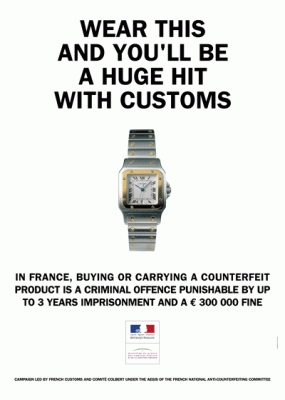
It’s just about common sense!
During the inauguration, presented by Thierry Moysset, President of the manufacture of the Forge de Laguiole (high end artisanal knife making), Moysset was being particularly praised. Right away, he grabbed the price issue by the scruff of the neck.
Common sense is what’s needed. “I am not trying to buy shit!” he told us. That was a pretty unexpected yet efficient way to engage in a debate around marketing and the need to start consuming differently.
People are so used to saying they just can’t afford buying basic and good quality items while walking around with an iPhone, he exclaims. What we think we need is what needs to be questioned in the first place. And what about the outsourcing or the high cost of production in France issues? He set the record straight on it: It’s doable and it’s affordable, despite the high cost of French labor. With that, Moysset admitted that 70% of his turnover (7 million euros) was for paying his employees.
He told us about what goes on behind the curtain. His products were deriving from local savoir-faire, and were “more than just a manufactured good”. A large number of families are earning a living from their work in the company based in a neglected region of France where unemployment rates are high. His high end knives are lifelong: they can be repaired, kind of like a Kelly bag from Hermès!
In the end, I felt like becoming one of his regulars, you know, bringing back home the story, the energy and the common sense of the founder – Don’t we need it?
« Localization vs Globalization? »
Some words stood out:
–going back to the French territory
–deglobalization
–making the Made in France label compulsory
-to fight and have the label adapted on the European level
All this implies conforming to the European law to work together on a European label and not alone as the Italian government tried to – see post With Vito Artioli). Here were some of the objectives expressed by the politicians on the day of the inauguration.
At the end of the two round tables sat Jean-Louis Borloo, the President of the Parti Radical. As the icing on the cake, he officially declare his will to keep the debate on the Made in France label to go on during the 2012 campaign for French president. For him, the label paves the way to the issue of deglobalization, a hot potato issue, a bomb he even claimed…
It’s a pity the debate and issues arisen were finally collected by only one politician. It was not surprising, however: Yves Jégo is the Vice President of the Parti Radical as well.
So it’s not all over yet! This is to be continued… Meanwhile The Daily Couture will raise the issue of the Made in France label with fashion professionals during the conference on Luxury and Made in France organized by the next Ethical Fashion Show.
Until later,
Translation by Camille Davis
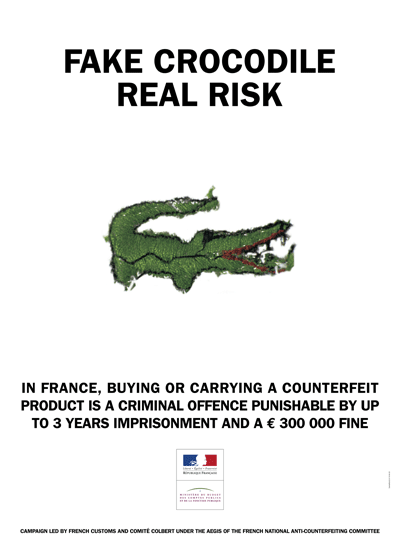
NOTES :
→Association Pro France, the site
→The Manufacturers’ Marketplace
→Museum of Counterfeiting in Paris
→Conference on Luxury and Made in France by The Daily Couture for the Ethical Fashion Show

